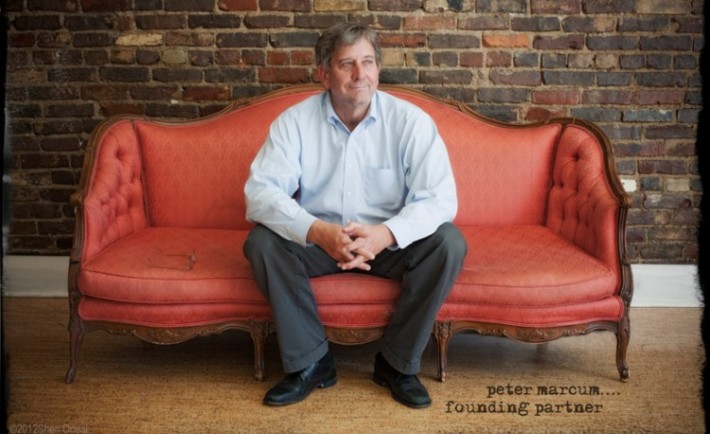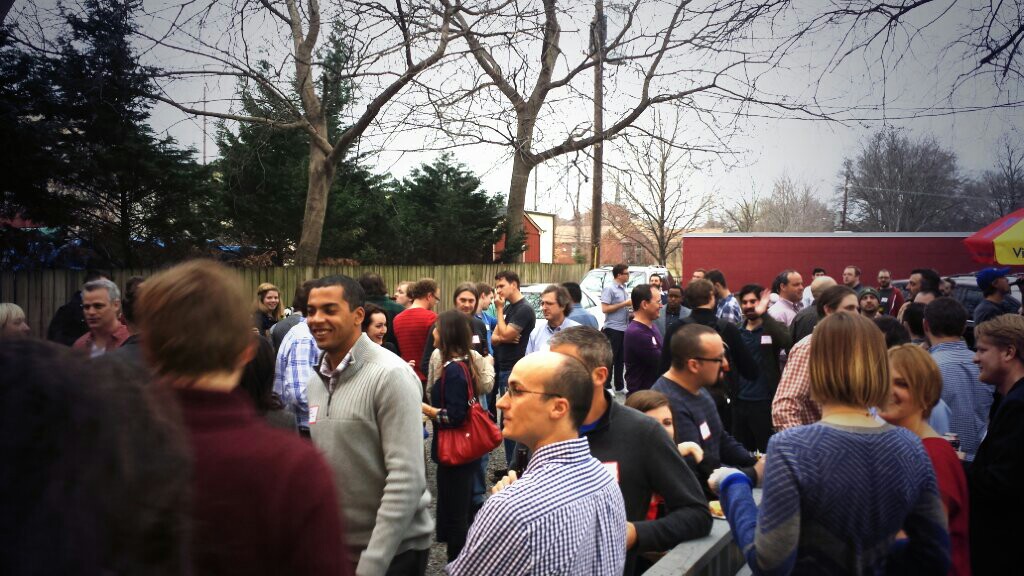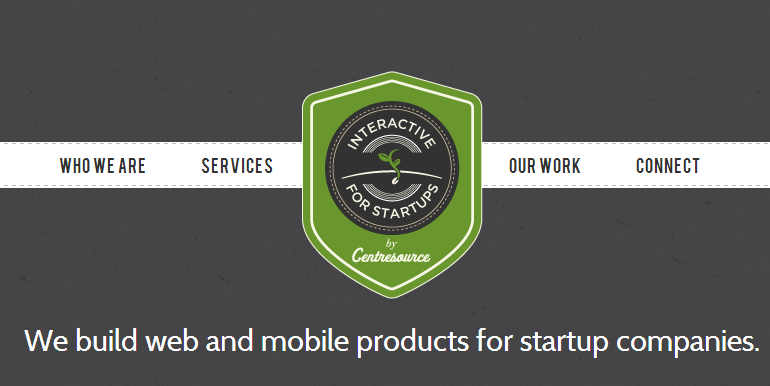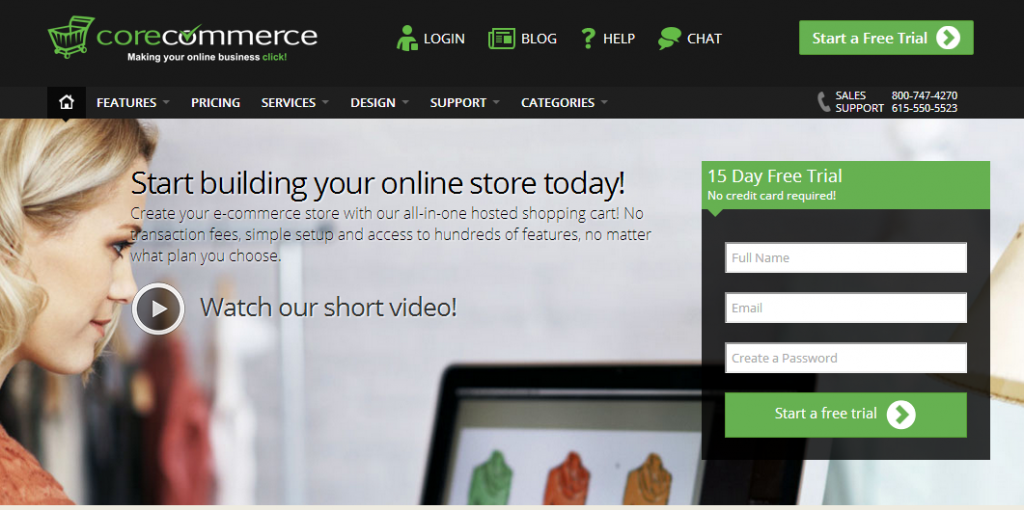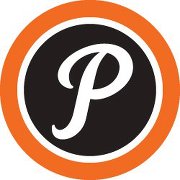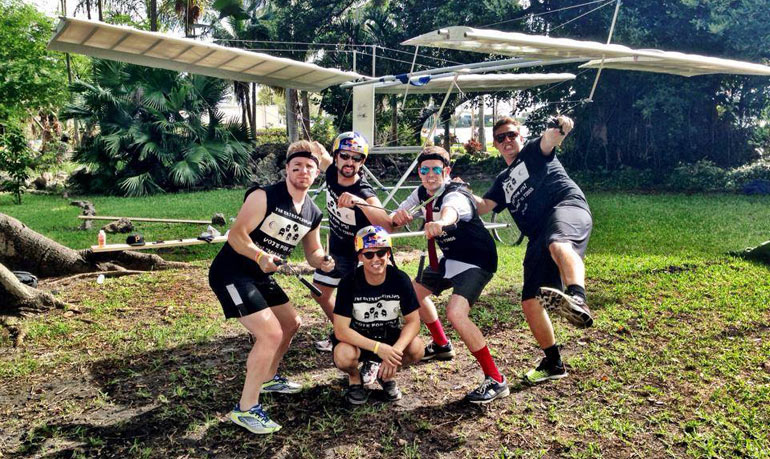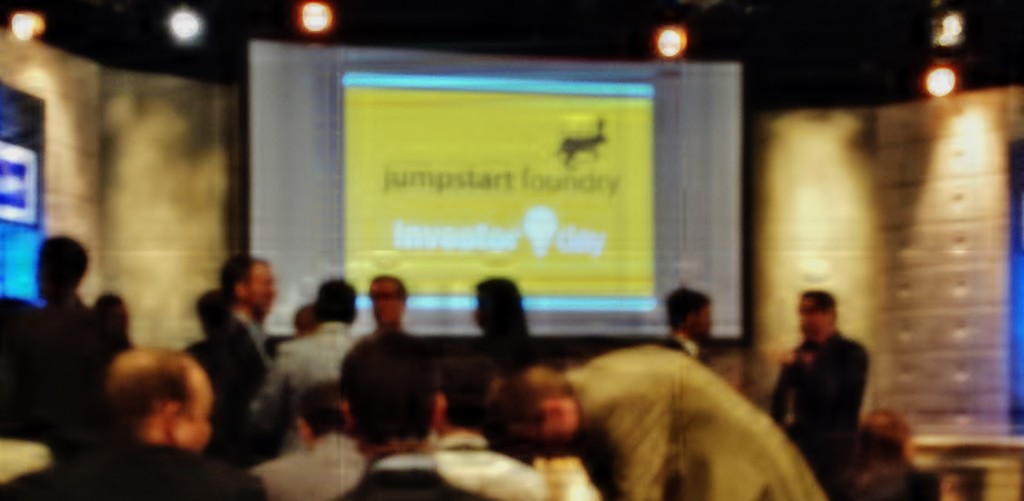Nashville-based Moontoast saw the future of social marketing, with the rise of the newsfeed. CMO Marcus Whitney talks about the aha moment as SXSW 2007 and iterating along with growing social media companies.
The Entrepreneurial Mind: The Nashville Entrepreneur Who Bought Most of Enron
Southland Takes Fireside Chats to A Whole New Level (+ Promo for Nibletz Readers)
 The second annual Southland Conference kicks off in less than a month, June 9, in Nashville.
The second annual Southland Conference kicks off in less than a month, June 9, in Nashville.
We reported in October that Sarah Lacy and PandoDaily were teaming up with LaunchTN to produce this installment of Southland. After a trip to Nashville for last year’s conference, Lacy was positive Pando needed to be involved with Southland going forward.
“I’ve always known that designing the next three day tech conference would inevitably be a big part of our business,” she said in a post announcing the partnership.
The schedule looks mostly like an interviewing bonanza for Lacy. The “speakers” will all sit down for onstage interviews with the PandoMedia CEO, a format she’s perfected during the PandoMonthly series.
Attendees to Southland will get to hear insights from folks like
- Al Gore–former Vice President of the US and native Tennessean
- Christy Turlington Burns–supermodel & founder of Every Mother Counts
- Aaron Levie–CEO of Box
- Phil Libin–CEO of Evernote
- Andy Dunn–CEO of Bonobos
- Bill Lerer–Managing Director of Lerer Ventures & CEO of Thrillist
As a nod to the South, the CEO of Acumen Brands John James will talk with Lacy about how to build an ecommerce powerhouse in Arkansas (when most of the competition comes from New York and the Bay Area.)
Lacy is well known for not babying executives too much and asking tough questions on stage. Like when she recently asked Twitter CEO Dick Costolo, “How much of a fuck-up was losing Instagram to Facebook?”
You can imagine the questions for Al Gore. Perhaps something along the lines of green energy investments and Kleiner Perkins?
Southland isn’t only about Sarah Lacy grilling top tech talent, though. Each day will also include “Salon Sessions,” smaller gatherings that allow attendees to ask questions of the speakers.
And, of course, the Southern flair that made Southland a great event last year: whiskey tastings, Southland Village, a makers’ area, and nightly concerts from artists like J Roddy Walston and the Business.
Nick and I will be in Nashville for the big event, and LaunchTN and PandoMedia are offering Nibletz readers a deep discount on tickets to the conference. You can get your tickets at the Southland website and use the promo code SL-NIBLETZ to knock $1000 off the price.
Apply to Southland & You Could Win a $100,000 Investment
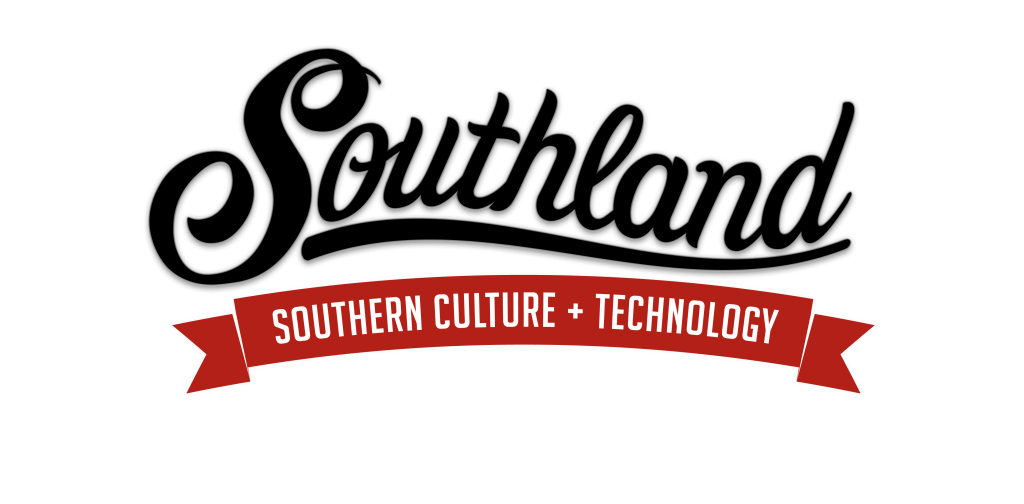
Registration is now open to apply for Southland 2014 and the chance to win $100,000 investment. 10 teams will be selected to pitch to a rock star panel of judges that includes: Kirsten Green (Forerunner Ventures), Josh Kopelman (First Round Capital), Shervin Pishevar (Sherpa Capital) just to name a few.
We talked about the new version of Southland last October, when PandoDaily’s Sarah Lacy announced that Pando would be a co-producer of the event. At that time, Lacy told me excitedly about wanting to showcase startups that were unique and special in the South.
“There are some companies that can only be built in the South,” she said.
In addition to the 10 companies chosen to pitch, up to 50 will also present in the Southland Village. A team of judges picked by PandoDaily will judge the applications and make the selections
Startups applying to Southland must be currently raising money and can not have raised more than $1.5 million.
After the Pitch Competition on June 10th, the winner will be offered a $100,000 investment opportunity. The catch is that on June 11, they will have to negotiate the terms of that investment, live on stage in front of the audience.
Now, much like Shark Tank, the terms will be subject to follow up and due diligence, but the pressure will be on to negotiate will in front of the crowd.
You can apply to the Southland Pitch Competition here.
In the mean time, there are another 10 startups vying for your vote and a chance to pitch at the Everywhere Else Tennessee Startup Avenue. Go check them out and vote for your favorite!
Centresource Throws A Party & Someone Wins a Ticket to #EETN
Last week #EETN sponsor Centresource Interactive Agency hosted their Spring Mixer.
And let me tell you, Centresource knows how to throw a party.
Nashville coworking space The Skillery hosted a pop-up coworking event at the Centresource offices in the afternoon. The Skillery is home to entrepreneurs in fields as diverse as graphic arts, freelance anything, and designers.
As The Skillery folks wrapped up the work day, people flooded into the Centresource offices, an old house in an up and coming Nashville neighborhood. The food was amazing! From a hot dog cart to a semi-celebrity chef, there was no shortage of unique things to munch on.
During the event, we hosted a Twitter contest for the funniest picture. Johnathan Jones (@thephotojones) won a free ticket to Everywhere Else Tennessee!
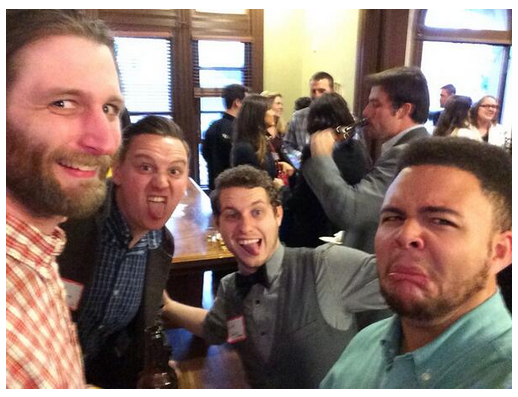
But, the highlight of the night was Centresource’s slow motion video booth. When I got to the offices 2 hours before the event started, the film team was already hard at work making it just right. Many curtain straigtenings, furniture moves, and tinkering later, here’s what they produced:
[iframe src=”//player.vimeo.com/video/90299896″ width=”500″ height=”281″ frameborder=”0″ webkitallowfullscreen mozallowfullscreen allowfullscreen]
Come hang out with the Centresource crew at Everywhere Else Tennessee April 30-May 2. (Early bird discount ending today!) Or at least make sure you get to Nashville for the Summer Mixer.
Healthcare MarketMaker Is Building the Zillow for Healthcare Practices
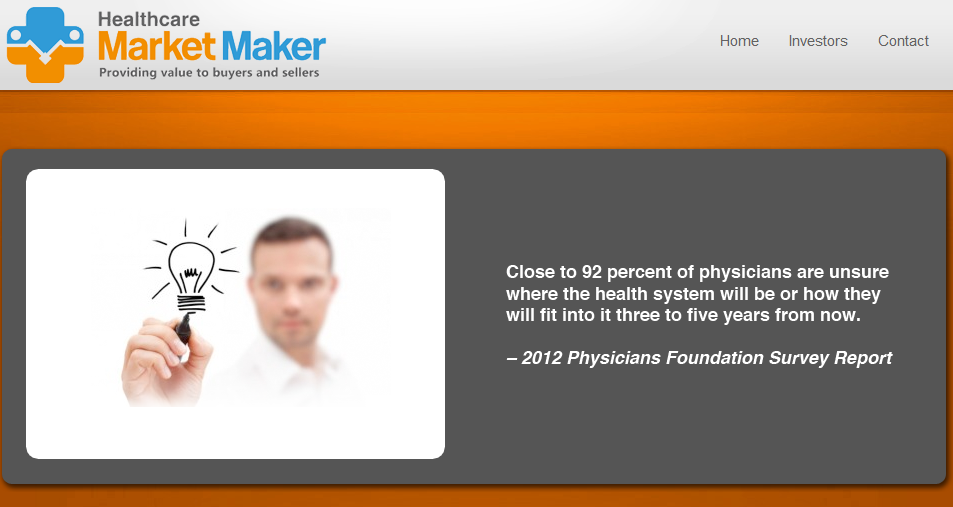
Nashville is a city built on healthcare, so it’s not surprising we see a lot of healthcare startups come out of it.
Healthcare MarketMaker is trying to become the “Zillow for healthcare transactions.” Essentially, they are building a marketplace for doctors and dentists looking to sell their practices.
This is one of those solutions you just won’t find in Silicon Valley. Read more about Healthcare MarketMaker in our Q&A below:
Healthcare MarketMaker is empowering healthcare buyers and sellers. Think Zillow for the healthcare transaction space.
What’s your big idea?
Healthcare MarketMaker provides online comprehensive marketplace technologies to healthcare buyers and sellers. Healthcare MarketMaker is the solution for originating and closing medical and dental practice transactions. Healthcare MarketMaker also offers specific transaction and marketing services for physicians, practice brokers, equipment brokers and other transaction vendors to ensure the best service and efficiency. Healthcare MarketMaker is an early stage company founded in 2013 and is currently in residence at the Nashville Entrepreneur Center.
What’s the story behind your idea?
After spending 20 years in the healthcare transaction space, working for companies like HCA, Ernst & Young and others, I realized that deals were still being originated and completed without technology enablement. There did not exist a robust healthcare transaction platform. Healthcare MarketMaker is that agnostic, cloud based SaaS platform.
The key to our marketing is the depth and positioning of our strategic partnerships. We believe in creating exclusive partnerships with specific subspecialty associations in each market. For example, partnering with chiropractic associations in each state will enable us to create more value for the association members while offering a means to increase membership levels for the associations. We also enrich associations’ value by providing content about the marketplace in their annual meetings, newsletters, and other communications.
Our practice broker partnerships also enjoy early and qualified lead origination as our platform identifies active physician buyers and sellers vis-a-vis the association relationship. When a physician may be looking to buy or sell a practice, he may look for guidance from his state association.
Currently, the healthcare market is being disrupted by two very large macro drivers. We have an aging physician population in the US. Over 33% of physicians, or approximately 400,000 physicians, are aged 55 or older. These physicians will be looking to retire and exit their practices in the next ten years. Also, the Affordable Care Act has increased vertical and horizontal integration in the provider space. Sole proprietors are selling to hospitals and large multispecialty groups in an effort to create scale to combat downward pricing pressures and compliance requirements. Therefore, the number of healthcare transactions is continuing to accelerate. The size of the US market is approximately $29 billion annually.
Who are the founders?
As I mentioned, I founded HCMM after in 2013 after continuing to hear physicians and dentists in the marketplace indicate a need for help in sourcing a good partner to help them buy or sell their practice. We’ve built strong Executive and Advisory Boards to help us in this crucial developmental stage.
Where are you located?
We are currently based out of the Nashville Entrepreneur Center, not only a great resource for the regional start-up community but for the larger business and creative communities.
What’s the startup scene like there?
The startup scene has really exploded in Nashville in the last 5 years. The resources available to entrepreneurs are more easily found and the local community with regard to vendors who understand the needs of startups has grown more sophisticated. HCMM tries to use local vendors specializing in startup services. For example, we’ve use CentreSource to develop a product demo that we use daily as our electronic business card. Also, we’ve used Ethos3 for pitch deck development.
What milestones have you reached?
We recently signed an LOI with Alliant Capital Advisors, the largest business broker in the Southeast. Also, we raised our initial seed capital and have begun our beta platform development with Objectstream.
What are your next milestones?
To continue to develop more relationships with practice brokers and medical and dental associations. We are also raising additional capital to hire the right tech co founder and stand up the market ready product.
Where can people find out more?
Please follow Healthcare MarketMaker on LinkedIn or our landing page at marketmakerinc.com.
Come Party With Nibletz & Centresource in Nashville Next Week

We’re heading to Nashville!
We’ve made some fantastic announcements in the last few days. Miss them? Check out here and here. And we’ve got even more to come!
So, with all this excitement happening, we figured it was the perfect time to take a break and throw a little party. Luckily our friends at Centresource agreed.
On March 27, Centresource is letting us crash their spring mixer. There’ll be beer, wine, and great conversation with entrepreneurs and creatives in Nashville.
Come hang out with me and Nick and let us know what you’re working on. We love startups and will be on hand to talk about your great idea. We’ll also be giving away a free ticket to Everywhere Else Tennessee, so you don’t want to miss that!
The mixer is from 5-8 at the Centresource offices. Click here to register.
If you’re in the Nashville area, we look forward to seeing you there!
Tandum Takes On The Live Event Ticketing Market
It’s a common complaint: buying tickets to events is frustrating, expensive, and annoying. UX is out the window for most platforms, and it’s never fun to buy tickets. Nashville and Charlotte-based Tandum wants to change that.
It’s hard to miss music industry startups in Nashville. Basically throw a rock and you’ll hit one of them. Besides that, there are a lot of ticketing startups out there. Tandum will have a battle to prove they’re the best. But, hey, a little competition never hurt anyone.
Check out our Q&A with cofounders Doug Pace and Tyler Griffith below:
What’s your startup called?
Tandum
What’s your big idea?
Our big idea started with two questions:
1) “Why does a ticket fee vary depending on the price of a ticket when the service is the same?” and
2) “Why do online ticketed events sell out so fast?”
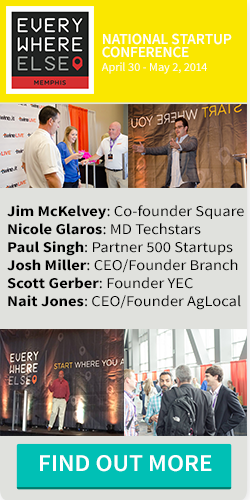 As we learned the answers to these questions, we had more questions…and then some ideas. These ideas soon became the basis for our early concept to fundamentally change the live event experience.
As we learned the answers to these questions, we had more questions…and then some ideas. These ideas soon became the basis for our early concept to fundamentally change the live event experience.
Through Tandum, we are committed to better serve all parties involved in the live event – the fans, the artists, the venues, the promoters, and the event staff. We believe there is a better way to manage ticket fees. We believe there is a better way for venues to manage their events. We believe there is a more efficient way for artists to connect with fans. We believe that fans deserve a better live event experience and Tandum aims to facilitate that experience through a fully-integrated, user-friendly platform. Tandum connects all users and drives efficiencies that greatly benefit the entire live event ecosystem.
What’s the story behind your idea?
We go to a lot of concerts. Though we were never strangers to exorbitant ticket fees, there were three particular events that we found especially frustrating. These three events led us to question some of live entertainment’s fundamental principles, and inspired us to create the Tandum concept.
On one occasion, we were trying to buy tickets to see one of our favorite bands, only for that event to sell out within minutes of going on sale. The website through which we were trying to buy the tickets had limited bandwidth and prevented us from obtaining our tickets. We immediately went to a secondary ticketing website to try and buy tickets, only to find that tickets were being sold at 3 or 4 times face value. As big fans of this particular band, we asked ourselves, “why aren’t we able to get tickets or reasonably afford scalped tickets to see one of our favorite bands?”
On a separate occasion, we tried buying tickets to see one of our favorite bands play a two-night event and decided to buy the tickets through the band’s fan club. We were met with extremely unfavorable and restrictive ticket policies that had been put in place to prevent ticket scalping. While we are certainly not fans of scalping, these well-intentioned ticket policies were overly restrictive and burdensome on the ticket buyer.
The final frustrating story involved the purchase of a ticket to see a popular musician. As expected, tickets sold out quickly and I ended up purchasing a scalped ticket. I learned an unfortunate lesson when I showed up at the door and the barcode on my ticket was not accepted– I was denied entrance because someone sold me a duplicate ticket which had already been scanned. At Tandum we are working toward eliminating these problems from the live event setting.
Who are the founders?
Doug Pace and Tyler Griffith.
Where are you located?
We are currently working out of Nashville, TN and Charlotte, NC.
What’s the startup scene like there?
The startup scenes in Nashville and Charlotte are young, but vibrant. We are fortunate to be in these cities which are placing an increased focus on helping startup companies grow and succeed. Nashville and Charlotte don’t necessarily have the capital and resources as Silicon Valley or New York City; however, it is exciting to see people in the community working really hard to develop the startup scene through accelerator programs, shared workspace for entrepreneurs, and easy access to networks of experts in the fields of business strategy, software development, and finance.
What milestones have you reached?
The Tandum concept has been in development for two years. During that time, we have been fortunate to speak with many different people in the live entertainment industry who have provided invaluable insights and guidance as we continue to develop the concept. At the end of 2013, we partnered with Centresource, a leading software agency in Nashville, TN, to develop a clickable iPhone and iPad prototype. In early 2014, we met with live entertainment venues and music festivals to demo the prototype and received extremely positive feedback. We also received a handful of letters of intent from venues that are interested in using our product once it is developed.
What are your next milestones?
Our next milestones are raising funding, hiring additional employees, and launching the fully-developed product. We have already identified our initial venue partners that we will work with to test and launch the product, so our next milestones are dependent on raising sufficient capital for software development. Our goal is to have the first product launch near the end of 2014. To date, we have been very quiet about Tandum, but we are so excited to unveil it when the product is launched.
Where can people find out more?
Please stop by our landing page, www.tandum.us. You can also find us on Facebook and Twitter. If you are an investor or a computer programmer and would like to be part of Tandum, please send us an email at info@tandum.us.
StartupBus Builds Startup Community Everywhere Else
“You know what yous should do?” Nick said to me one Thursday night. “You should volunteer to be press on the Nashville StartupBus.”
2 days later I found myself up at 6:30 AM (for crying out loud!) and heading to the Nashville Entrepreneur Center to catch the bus. This bus, to be exact:
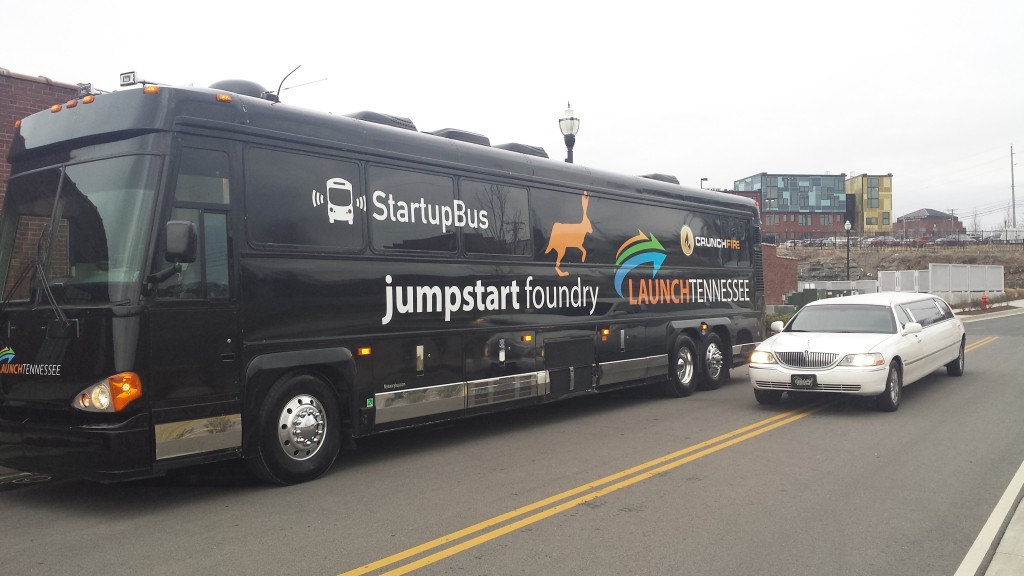
67 hours later, 2 ice stops, and 1 almost-mental breakdown later, we pulled into the hotel in San Antonio. I may or may not have had some colorful things to call Nick at this point.
Still, riding the Nashville bus was awesome. I met some great people, learned a lot on the mentoring team, and got to see some pretty cool companies built. But none of that prepared me for the amazing experience the 2 days at Rackspace headquarters would be.
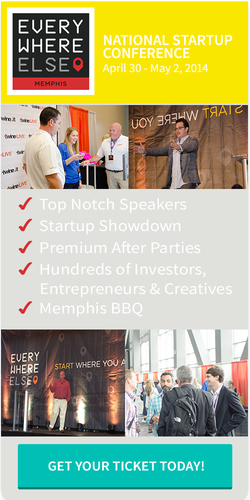 This is the second year Rackspace has hosted the competition at the end of the StartupBus ride. If you haven’t heard, Rackspace bought an old mall and turned it into office space. It’s pretty awesome.
This is the second year Rackspace has hosted the competition at the end of the StartupBus ride. If you haven’t heard, Rackspace bought an old mall and turned it into office space. It’s pretty awesome.
The teams started preliminary pitches around 9 AM, even though many of the buses got in at 1 or later. Preliminary pitches were done in front of panel of StartupBus judges, while in another room teams prepped for their turn. Lots of pacing, lots of coffee, and lots of people randomly talking to themselves under their breath. Basically, it was startup heaven.
Sixteen teams went on to semifinals, and from there 8 more teams were chosen for the finals (Including Nashville’s On the List). Finals judges included Guy Kawasaki and Robert Scoble, among others, and they didn’t hold back in their criticisms and advice for the teams. Ultimately Mexico’s SmartHost came out on top.
The competition was fun, but the real story of StartupBus happened after the fact when several people migrated to SXSW. As the weekend wore on, the folks from various buses found themselves together again and again. The annual GroupMe chat had repeatedly have the limit raised because more and more people wanted to be involved.
“It’s like everywhere we go, it’s half StartupBus people,” Roxanne Spielvogel told me. “We just can’t get enough of hanging out!”
That kind of community is no accident or serendipity. The team at StartupBus see it as their number one goal, beyond the competition and the companies built on the buses.
StartupBus National Director Jon Gottfried put it to me this way:
Our community is actually the primary focus of StartupBus. In many ways, the competition is just the induction into that community. So the strength of our group at SxSW is truly our goal – and it has nothing to do with the conference. Those bonds and that support network are permanent. We frequently see Buspreneurs working together, founding companies together, and becoming great friends long after the competition ends. For me, the StartupBus community has had an immense impact on both my personal and professional life in New York tech.
Want to be involved in StartupBus? Check out the website and follow them on Twitter. You won’t regret it.
PS–I would be remiss if I didn’t say thanks to the amazing sponsors both of StartupBus national and of the Nashville bus. Rackspace was a great host, and companies like Elance, SendGrid, and Twilio made the whole thing a great time. For the Nashville bus, thanks to the Crunchfire team for riding along and being great mentors. JumpStart Foundry and LaunchTN were also huge sponsors that provided so much for the trip.
Nashville’s Centresource is the Agency that Does It All
As startup culture grows, development shops are popping up all over the country. Each one typically provides web and/or mobile development for early stage startups, either for cash or equity.
Nashville-based Centresource, though, isn’t your typical dev shop. They do help with development, but they also pitch in at every stage of the process and take on every role there is: marketing, design, product development, and more.
 Founded by Populr’s Nicholas Holland in 2004, Centresource initially worked with full grown companies, but branched out to include startups in 2012. Check out our Q&A is Centresource’s Chad Hazlehurst below.
Founded by Populr’s Nicholas Holland in 2004, Centresource initially worked with full grown companies, but branched out to include startups in 2012. Check out our Q&A is Centresource’s Chad Hazlehurst below.
-
What is Centresource?
Centresource is one of the leading web and mobile product development shops in the Southeast. We have been in the interactive space for 10 years building best-in-class user experiences, developing break-out products, and creating go-to-market strategies to drive adoption.
-
What do you do for startups?
In 2012, Centresource made the decision to form a separate business unit specifically dedicated to startups. We custom-tailor our solutions based on the challenge, but there are a few key ways we work with startup companies:
1. PRODUCT PLANNING/USER EXPERIENCE
One of the biggest challenges for early stage startups is proving demand for their product. Many of our early-stage clients struggle to show the value of their idea to investors or potential customers. They go to meetings with sketches on napkins and unproven concepts. Investors and customers are asking for something more than an idea – they want to see and touch the product.
Even more importantly, one of the biggest mistakes early stage startups can make is building features users don’t need. Startups need a tool to validate their assumptions.
To address both issues, we have developed a simple, effective process for creating high-fidelity clickable prototypes. We walk the startup through product planning, taking them through all the decision-making that would go into the MVP, then we deliver a prototype that can be demonstrated to users and investors.
Our clients are using the prototypes to pre-sell, for user testing, and to secure investment. Starting with a prototype allows us to take user and investor feedback, easily and quickly pivot if necessary, and then build out the application once more is known about demand. Getting a product in front of users and getting feedback before making large investments can help mitigate risk and avoid costly mistakes.
2. TECH TALENT
Tech talent is hard to find and hard to manage. Some startups have a team of coders, but they need help making business-critical technology decisions. Other clients have an advisor or CTO, but need a team to implement. We can help in both cases.
Some of our most successful projects have involved taking a product from conception to to the point where the startup is revenue-positive and ready to hire their own team (we are now helping them hire). In 2 or 3 years of working with Centresource, the startup has invested a fraction of one developer’s salary. And we’ve played all positions on the team: product strategy, design, front-end, and back-end development.
When a startup’s sole developer is poached or moves on (which happens), the company is put in a serious bind. We have been able to help by providing developers to hit timelines and milestones. This can be critical when speed to market is a factor, or when investor expectations are in play.
3. MARKETING
Some of our clients have a product ready to ship, but they need help driving adoption. In this case, we engage our incredible Go to Market team. Introducing a new product is a completely different challenge than marketing an existing brand. We are employing innovative, smart strategies to help startups identify early adopters and connect with them. The team essentially becomes a snap-on marketing department.
-
How is your approach different from other agencies?
We’ve positioned ourselves to be able to help at any stage of the startup’s process. Through a custom strategic approach we are going to build what is needed to achieve the next goal. Sometimes clients and agencies get caught up in the big picture, and miss the steps along the way. Clients hire us because we are fast, reliable, and have deep expertise in product development. They trust us because we understand the challenges unique to startups. For us, success is when our clients succeed.
-
What’s your favorite thing about working with startups?
The passion and determination to change the world and succeed in a brutal, ever changing market.
-
Where do you see the Nashville tech scene going in the next couple of years?
Nashville is blowing up. This city has momentum and we do not see it stopping any time soon. We feel the Nashville tech scene is on the verge of a huge breakout success. One thing that makes Nashville different is our great sense of community. Everyone here is ready to help and give an attentive ear. We love being a part of this community and helping in any way we can.
-
How can startups that are interested get in touch with you?
Head to our website at centresource.com and interactiveforstartups.com or contact Ann Howard at ann@centresource.com and Chad Hazlehurst at chad@centresource.com.
Build a Beautiful Online Store with CoreCommerce
With the growth in ecommerce, everyone is able to sell online. But, non-tech people are often relegated to eBay stores of Etsy shops that offer little in the way of personalization, branding, and control.
Nashville based CoreCommerce is changing that with a platform that allows even the most un-technical person (like me!) to build their own gorgeous online storefront.
Check out our Q&A with CoreCommerce CEO Matt DeLong below, and if you’ve been thinking about opening an online shop, make sure you check out their 15 day free trial offer.
What is the name of your startup?
CoreCommerce
What’s the story behind your idea?
After noting the lack of ecommerce shopping cart options back in 2008, we wanted to make it easy for someone to build an online store and have access to all features without having to opt for the highest pricing plans for basic features.
Who are the founders, and what are their backgrounds?
Matt DeLong has a programming/technical background and Nick McDuffie has a sales/marketing background. (Nick has moved onto other projects while Matt remains CEO)
Where are you based?
Franklin TN (just outside Nashville)
What’s the startup scene like where you are based?
Nashville has a very vibrant startup scene, there are plenty of entrepreneurs to connect with and learn from. For entrepreneurs, there is no shortage of training, mentoring or opportunities in Nashville.
What problem do you solve?
Our goal is to simplify building an online store, especially for non-techies. With CoreCommerce, anyone can easily build a beautiful, functional online store cost-effectively.
Why now?
CoreCommerce launched in 2008, when there weren’t a lot of e-commerce shopping cart options in the market. Thanks to the growth of technology and online shopping, it’s never been easier to start a successful online business.
What are some of the milestones your startup has already reached?
We surpassed $1m in recurring revenue in 2011.We surpassed $1b in transactions on the platform in 2013.
What are your next milestones?
We anticipate 2014 as a big year for CoreCommerce! This summer we are planning to launch of a new version of our software. Another big milestone for us will be adding another 5,000 customers by the end of 2015.
Where can people find out more? Any social media links you want to share?
To learn more about CoreCommerce or start a 15 day free trial, visit corecommerce.com.
Follow us on Twitter: https://twitter.com/
How Tennessee Startups Are Killing It
Let’s make one thing clear. I am a Mississippi girl, born and bred. (Back home, we call it Miss’ippi, y’all.)
Still, I’ve lived in Tennessee for almost 10 years now, and I have to say, I’m pretty proud of my adopted home state. We have amazing organizations like Launch TN and accelerators in each major city working on growing the entrepreneurial ecosystem here.
In the last week, startups and startup ecosystems in Tennessee made big strides toward putting our state on the map.
The Nashville company traveled to the Valley earlier this fall to join 500 Startups Batch 007. Late last week, they were named 3rd in the class by Mattermark. The analytics company monitors growth across a variety of web metrics, and their data shows Populr.me is building some momentum going into Demo Day.
The startup provides easy one-pagers for business and sales. The templates are fully customizable with your brand, and they’re easy enough for anyone to use, even if you aren’t a developer or designer. They’ve had a big year, including the hiring of music industry veteran Heather McBee.
Then, Chattanooga-based Quickcue announced their acquisition by OpenTable for $11.5 million. Quickcue provided restaurants an iPad app to manage wait lists. It was founded at a Chattanooga 48 Hour Launch event in 2011.
The Quickcue team will stay in Chattanooga, and its current customers will continue to be serviced. The acquisition marks the first exit for a Chattanooga tech company, a mileston any ecosystem can be proud of.
Finally, Memphis venture development organization Start Co announced its acceptance into the Global Accelerator Network. Start Co offers several resources for Memphis entrepreneurs, such as free coworking space and weekly classes with local mentors.
The organization also runs 3 accelerators: Seed Hatchery, Upstart, and the new logistics program Sparkgap. The application period is now open to all three programs, which will begin in May.
Because startup ecosystems aren’t as dense in some states as in the Valley, it’s all to easy to overlook the real momentum that different regions are seeing. Tennessee has even more going on, but these 3 events especially show traction in the Volunteer State. Congrats to all of the companies, and in the words of Start Co CEO Eric Mathews, “Never stop starting.”
Oh, by the way, you know what else is happening in Tennessee in 2014, right? Stay tuned for announcements on the version 2.0 of the Everywhere Else Conference!
Nashville Entrepreninjas Take Flight (sort of)
By day Jared Marquette, Ryan Carter, Robbie Goldsmith, Sam Lingo, and John Murdock are Nashville-based entrepreneurs living the good life, making stuff, creating things and innovating. By night, they suit up in the ninja masks that they were reportedly born with, and become entrepreninjas.
Entrepreninjas is the name of the Michael Burcham and Nashville Entrepreneur Center backed team that competed this weekend in Red Bull’s Flugtag competition. Flugtag is a national competition that was held simultaneously across five US cities this past Saturday. The competition calls for teams to create a man powered flying machine. The machine is launched from a runway over water where it’s judged.
The celebrity judges were looking for creativity of craft, distance, and showmanship.
The Entrepreninjas built their craft in Nashville with part of the building taking place at the new Entrepreneur Center where team member Sam Lingo is the operations manager.
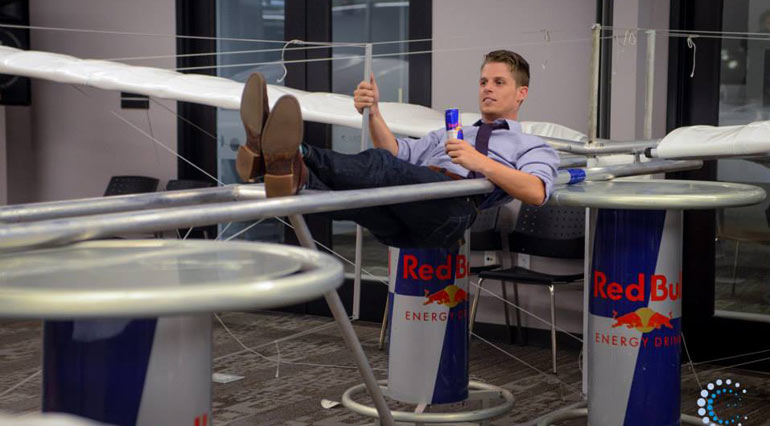
Entrepreninjas built most of their flying machine at the Nashville Entrepreneur Center (photo: Facebook)
Michael Burcham, along with the Nashville Entrepreneur Center, Polar Technology, Track Ref, and the Thinkery teamed up to back the Entrepreninjas with the expenses of building a flight machine, getting it to Miami and entering the contest. It seems like perfect sense. If these guys can build companies, they can easily build a flying machine, no problem.
The team competed against other teams in Miami as well as the four other locations. The top 3 teams from each location won prizes from Red Bull, including Red Bull sports and music experiences, and of course bragging rights.
The flying machine looked great, judging from the photos on the Entrepreneur Center and Burcham’s personal Facebook page.
The team seemed to do very well in the showmanship category, showing off their ninja moves on the runway before launching the flying machine into the sky (or the water as it was).
As you can see from the video below though, they didn’t get very far in flight. The Entrepreninjas, despite a valiant effort, gave new meaning to the theory “Fail Fast.” But alas they are entrepreninjas and iteration trumps perfection, so I’m sure we will see them back out again next year.
This was an awesome showing for Nashville and a great team building exercise. For your enjoyment their flight video is below.
6 Reasons to Keep Accelerators Everywhere Else
There’s an accelerator bubble.
Accelerators, except for Ycombinator/TechStars, are irrelevant.
We should get rid of the Demo Day.
If you’ve been in the startup space for more than a minute, you’ve probably heard someone say something like this. Founders and startup advocates have naturally critical minds; it’s why we can solve complex problems in innovative ways. But, that also means we spend a lot of time second guessing and rethinking every single thing we do.
I’ve had my own doubts about the accelerator model, and they mimic most of the concerns people bring up. There are so many (2000 around the world). What company can really be built in 3 months? It seems that the only real success comes from the big names, so why bother with smaller, local accelerators?
But, this week I was convinced that accelerators everywhere else can be just as beneficial to companies as the more publicized YCombinator and TechStars. Yesterday I attended the Investor Day for Jumpstart Foundry, in Nashville, TN and was duly impressed with what I saw. Of course, they had the bells and whistles–cool venue, great food, open bar. But more impressive were the companies that presented.
Every company had made significant strides in the 3 month program. Most could give detailed explanations of revenue. Quite a few already had traction and are well on the way to making real money already.
Vic Gatto, founder of Jumpstart Foundry and partner at Solidus Company, is well aware of the negative perception accelerators carry.
“We’re definitely a young industry going through definitional challenges,” he told me. He talked about meetings with other accelerators around the world. The leaders of these accelerators are talking about what defines success. Is it funding? Exits? Revenue? Level of mentor networks?
By most metrics, Jumpstart Foundry is finding success. 65% of its graduates are still in business, either bootstrapping or with funding. They have over 100 mentors, and that network grows each year. Gatto insists, though, that another real metric of success will be future exits, and most of the industry is still too young to really see that achieved yet.
One mentor told me that this year’s cohort may be the best she’s seen. “And they didn’t start off particularly special,” she said. “I think that really speaks to how the program itself is growing.”
And, as far as getting rid of Investor Day, Gatto won’t be doing that any time soon.
“That pressure is important,” he said. It’s the deciding factor sometimes when a new founder is tired and wants to call it a night. With Investor Day looming, it’s easier to focus and do the hard work of a young company.
Make sure to check out Jumpstart Foundry’s latest cohort because there are definitely some companies to watch. We’ll cover some of them here on Nibletz in the coming weeks.
In the meantime, here are a few reasons we shouldn’t give up on the accelerators everywhere else just yet:
- In the life of a young company, it can be easy to let an idea go when it gets hard. Surrounding yourself with mentors and good advice in an accelerator can help you push through those first stage challenges.
- The pressure of Investor Day can give you more traction than you thought possible in 3 months.
- Accelerators everywhere else understand companies everywhere else. We’ve talked before about how companies outside of Silicon Valley are innovating in industries besides the Internet and apps. Local accelerators inherently “get” that more easily than accelerators that are used to churning out consumer-facing apps.
- A good accelerator can be a rallying point for a whole ecosystem. Yesterday in Nashville, it was a packed house. Not just investors, but anyone interested in the startup scene showed up to support the cohort.
- Even if your first company doesn’t succeed, the 3 month MBA you get by doing the hands on work of an accelerator will be invaluable to the next companies you build.
- Accelerators may not be perfect, but what is?Anything that spurs innovation is good for the local community as well as for global issues that need creative problem solvers.



